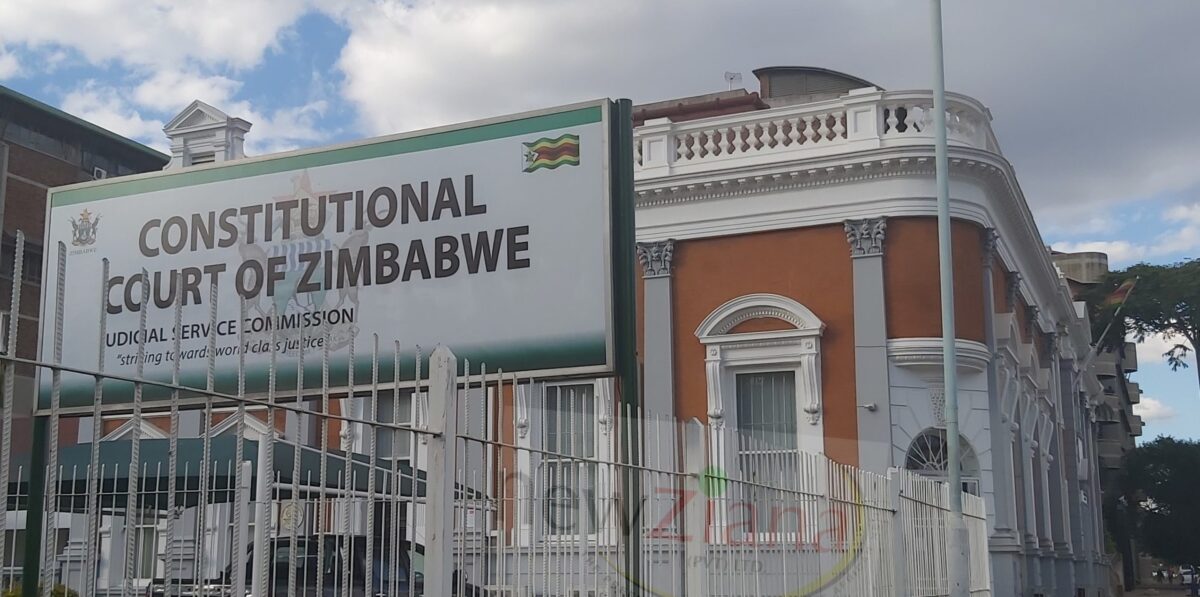HARARE – The Constitutional Court has confirmed the order of constitutional invalidity by the High Court which last year ruled that some by-laws which were being used by local authorities to demolish people’s houses without obtaining court’s permission were unconstitutional.
A seven panel bench, in a recent judgement, confirmed the lower court’s ruling stating that the concessions made on behalf of the respondents were properly made.
“Accordingly, with a few minor but necessary amendments to the draft order, it is ordered by consent that: The order of constitutional invalidity issued by the High Court under Case No. HCH 6718/20 be and is hereby confirmed,” said the bench.
The judges also said Section 32(2)(c) and section 32(2)(d) of the Regional Town and Country Planning Act [Chapter 29:12] is declared to be inconsistent with section 74 of the Constitution and therefore invalid.
The matter before the High Court was instigated by the publication of a demolition order by the Chitungwiza Municipality.
The published notice contained a schedule of identified municipal areas in St Mary’s, Zengeza, Seke, and Nyatsime, where illegal structures had been prefabricated without prior council approval.
The residents in these areas were ordered to restore the land to its original state after demolishing all illegally erected structures and removing all their property.
The notice stated that the failure to comply with the order within the prescribed period would entitle the municipality to proceed with the required demolitions without incurring any legal liability.
Following the demolition notice, the lawyers representing Chitungwiza Residents Trust wrote the municipality reminding it that s74 of the Constitution proscribed any eviction or demolition of a home without a court order made after considering all the relevant circumstances.
They requested it to furnish them with an order that gave it permission to evict and demolish houses in the areas mentioned in the demolition order.
In turn, the municipality wrote to the applicant’s legal practitioners on 11 October 2020 and indicated that they had resolved, through a special full council meeting held on 9 October 2020, to put the demolition exercise in abeyance and that the demolitions would no longer be effected as per the order.
However, the applicant then approached the court a quo for an order of constitutional invalidity in respect of ss 32(2)(c), 32(2)(d) and 37(1)(a)(i) of the Act.
A ruling was then made in favour of Chitungwiza Residents Trust.
High Court Judge Never Katiyo adjudged that the provisions of section 32 of the Regional, Town and Country Planning Act and section 37 of the Regional, Town and Country Planning Act, which Chitungwiza Municipality relied upon in issuing some enforcement orders, had outlived its usefulness and hence should be repealed and realigned with the Constitution.
Justice Katiyo had earlier on 24 July 2024 declared section 32(2)(c) and (d) of the Regional, Town and Country Planning Act as well as section 37(1)(a)(i) of the Regional, Town and Country Planning Act to be ultra vires section 74 of the Constitution and therefore unconstitutional and had also declared the demolition order issued by Chitungwiza Municipality on 8 October 2020 to be invalid.
On 16 October 2024, Justice Katiyo ruled that local authorities such as Chitungwiza Municipality, which administer the Regional, Town and Country Planning Act, must always ensure that construction of residential properties on areas, where there are disputes of ownership of land, do not take place in their full view and they must not react after the construction of houses.
The Judge stated that local authorities must follow due process and procedural safeguards provided in terms of section 74 of the Constitution, which guarantees freedom from arbitrary eviction.
The residents were represented by Tererai Mafukidze who was instructed Tinashe Chinopfukutwa, Kelvin Kabaya and Paidamoyo Saurombe of Zimbabwe Lawyers for Human Rights,
















